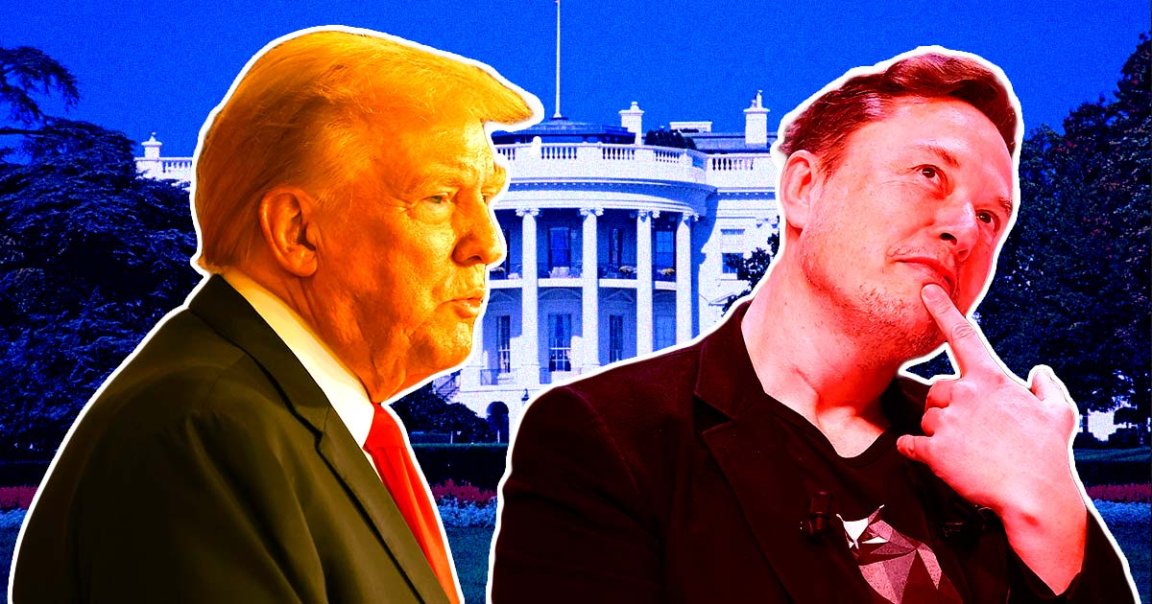
During a characteristically incoherent speech in New York on Thursday, former president Donald Trump called for the creation of a “government efficiency commission” to audit the entire federal government and implement “drastic reforms.”
Who would he put in charge of this endeavor? None other than his latest number one fan, multi-hyphenate billionaire Elon Musk, with the goal of saving the US government “trillions of dollars.”
Musk, who recently endorsed the former president, gladly accepted his proposal.
“I look forward to serving America if the opportunity arises,” he tweeted in response. “No pay, no title, no recognition is needed.”
The billionaire has had a long track record of bristling against regulation and government intervention. But when it comes to efficiently running a business, his abysmal stewardship of X-formerly-Twitter should serve as a glaring warning sign.
The social media platform, which he acquired for a whopping $44 billion in 2022 has atrophied under his ownership. Earlier this week, new research by data firm Kantar found that over a quarter of all advertisers were ready to cut spending on the platform next year — coming on the heels of already-brutal losses at the company under Musk’s stewardship.
His repeated pay cuts and mass layoffs have hamstrung Twitter’s operations, turning it into a sputtering and often barely functional mess. Even a major interview with Trump quickly devolved into a technical issues-laden disaster last month.
And that’s not to mention the millions of users fleeing a platform that has quickly transformed into a cesspool of hate speech, disinformation, and propaganda — something the billionaire himself has extensively contributed to.
Whether Musk is a genuinely effective and efficient leader is also something of an open question. He’s seen extraordinary successes at SpaceX and Tesla, but his growing penchant for micromanagement and confounding missteps is quickly eating into that legacy.
In other words, is this really the man we’d like to see in charge of a government efficiency commission? Besides, given the many times he butted heads with regulators — remember all his epic fights with the Securities Exchange Commission? — his ulterior motives are obviously extensive.
There are plenty of reasons to suggest Musk’s real motivation is to deconstruct the government from the inside out, in other words, rather than saving it money.
Meanwhile, Trump made his complete incompetence when it comes to dealing with economic policies crystal clear. In one particularly unhinged answer to a question on Thursday, the septuagenarian laid out his views — if you can even call them that — on child care.
“And we’re sitting down — you know, I was somebody — we had Senator Marco Rubio and my daughter Ivanka was so impactful on that issue,” he told audiences. “It’s a very important issue. But I think when you talk about the kind of numbers that I’m talking about that — because, look child care is child care. It’s, couldn’t, you know, there’s something — you have to have it, in this country you have to have it.”
In short, with a scattered business record and a potential new boss who’s a former reality TV star seemingly far more interested in TV ratings and golf, Musk could leave some massive scars behind while heading a government efficiency commission.
However, whether a white-collar gig in Washington, DC will be able to capture — and keep — his attention remains to be seen. Musk is already spread incredibly thin as it is, and it’s hard to imagine overseeing government spending turning into a new passion of his.
More on Trump and Musk: After Elon Musk Bends Knee to Donald Trump, Trump Throws Him Under the Bus